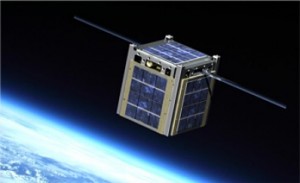Special to WorldTribune.com
TEL AVIV — An Israeli university has overseen a program meant to
form a constellation of nano-satellites.
The Israel Technical Institute, known as the Technion, has hosted a
nano-satellite project called CAESAR. Organizers said the program,
administered by the state-owned Rafael Advanced Defense Systems, called for
a constellation of 48 Cubesats.

“The CAESAR constellation is designed to orbit in low-earth orbits in a Walker Delta Pattern constellation at an altitude of 710 kilometers and an inclination of 45 degrees,” the organizers said in a statement.
The program was released at the Israel Annual Conference on Aerospace Sciences in Tel Aviv on Feb. 29. The eight-student team, led by Rafael’s Paul Herscovitz, was meant to locate assets at sea through nano-satellites.
“The system geo-locates a user by means of a TDOA algorithm refined by an Extended Kalman Filter used to estimate the user’s true location from the TDOA initial location, thus allowing the use of only two satellites in a formation rather than three as required by independent TDOA algorithms,” the statement said.
Israeli defense majors often sponsor Technion projects in an attempt to
demonstrate concepts. Organizers said the constellation would determine the
location of any target within 15 minutes of signal transmission, with a
location error of less than a kilometer.
Rafael and the Technion also joined for a student project to design a
ramjet powered air-to-air missile, called Sky Fox. The project contained
preliminary design and detailed design stages.
